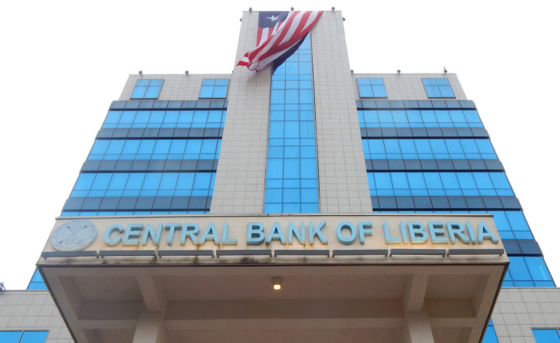Liberia: CBL Retains Monetary Policy Rate at 15%

---- The CBL used its monetary policy power to influence the inflation rate, exchange rates, and credit policy in an economy.
The Central Bank of Liberia has retained its monetary policy rate at 15%, while upholding the Liberian dollar and US dollar reserve requirement ratios for banks at 25% and 10%, respectively.
The CBL used its monetary policy power to influence the inflation rate, exchange rates, and credit policy in an economy.
An increase in the policy rate helps to contain or reduce inflation, strengthen the value of the domestic currency, and contain excessive credit growth, while a reduction in the policy rate would lower the lending rate and boost economic activity through credit expansion.
The decision was taken by the CBL monetary policy committee (MPC), during its first quarterly meeting of 2023 held on February 16.
The MPC further decided for the CBL to issue the fortnightly CBL bills exclusively to commercial banks, while the monthly and quarterly CBL Bills are offered to both commercial banks and retail investors. The CBL bills are part of the monetary policy instruments of the CBL which are conducted through open market operations (OMO).
The MPC is confident that the implementation of these monetary policy measures, which were prompted by global and domestic macroeconomic developments, will foster domestic macroeconomic stability.
The declining global economic growth rate from 6.2% in 2021 to 3.4% in 2022, as well as the rise in the global headline inflation to 8.8% in advanced countries and 14.4% within member countries of the West African Monetary Zone (WAMZ), informed the policy decisions of the MPC.
It was observed that the policy rates in several advanced economies had risen, as was the case in WAMZ countries, aimed at curbing rising inflationary pressures as a result of the heightened inflation risk in the global economy.
Declines in the global prices of Liberia’s major export commodities, i.e., palm oil, iron ore, rubber, gold, and round logs, during the last quarter of 2022 were of grave concern to the MPC. The MPC’s concerns were, however, eased by the sustained decline in global crude oil prices, which had the effect of lowering the pump prices of fuel in the domestic economy and hopefully reversing inflation.
The MPC noted positive domestic economic developments, with an estimated 5.9% quarterly growth in Real Gross Domestic Product (RGDP) in the last quarter of 2022, due mainly to growth in the mining sector, especially in gold production, although growth in the mining sector in 2022, at 14.0%, was less than robust as compared to 2021, which was 17.6%.
The Committee was concerned about the rise in the inflation rate to 9.3% from 6.9% in the third quarter of 2022, and the widening trade deficit to 6.7% of GDP in the fourth quarter of 2022, compared to 5.5% of GDP in the previous quarter, which was attributed to a 13.6% rise in import payments and a 2.4% decline in exports receipts.
The Committee noted the net remittance inflow through the banking system in the fourth quarter of 2022, rising from US$62.5 in quarter three of 2022 to US$68.5 million in the fourth quarter of the same period. Notwithstanding this positive development, the Liberian dollar was projected to depreciate by 7.3% in the first quarter of 2023.
